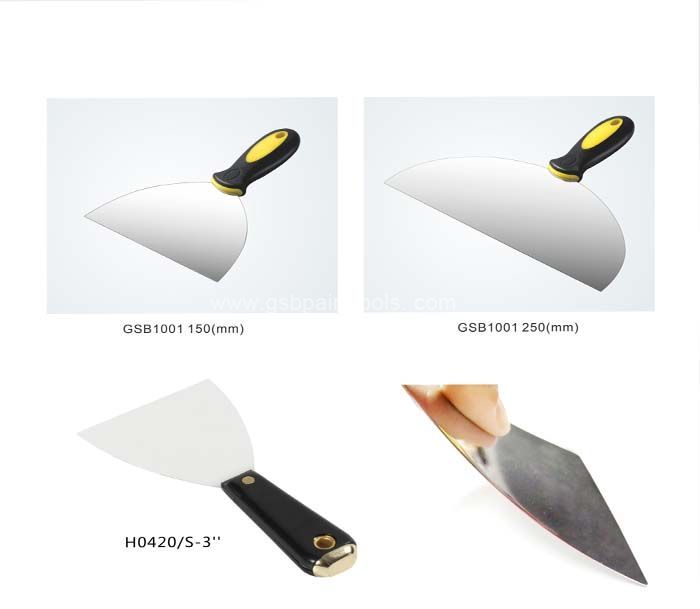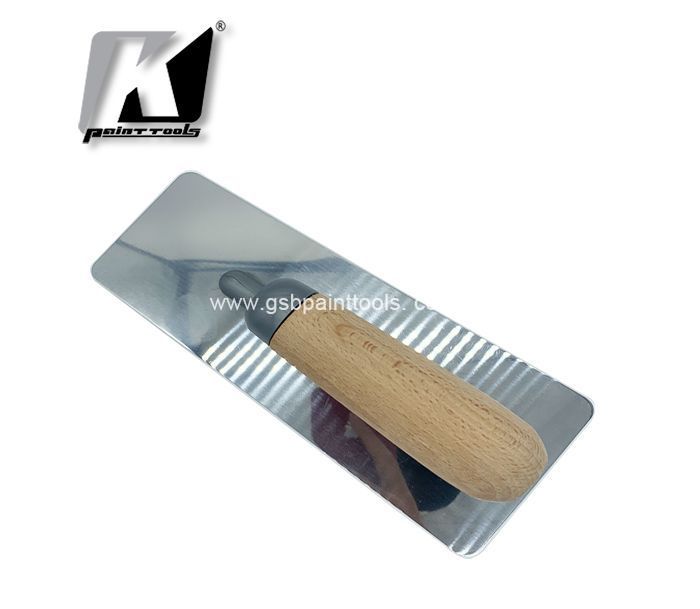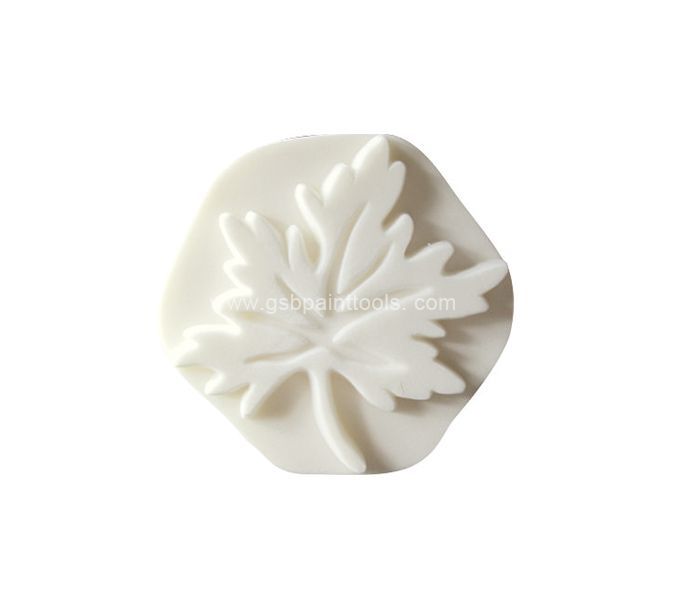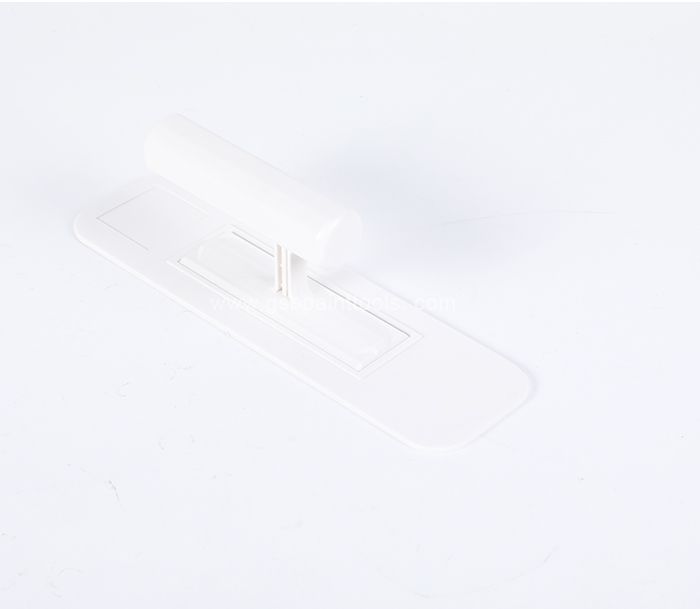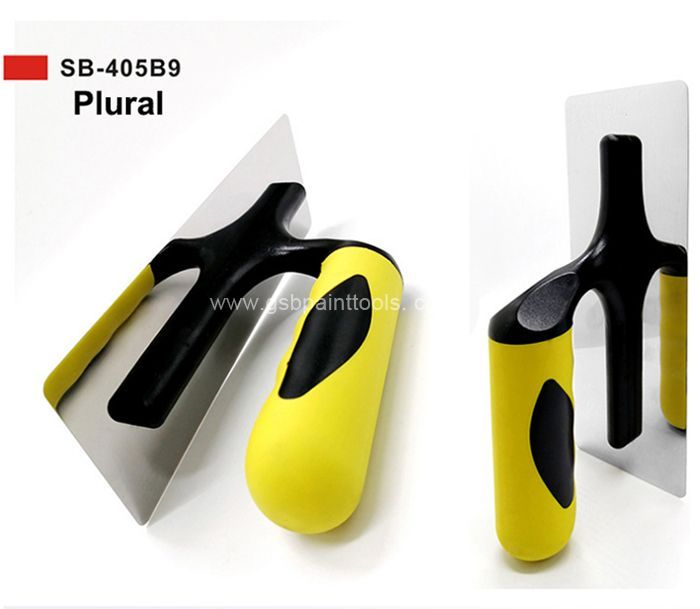Features:
About this Item:
PRO QUALITY STAINLESS STEEL TAPING / PLASTERING KNIFE SPATULA SET - For drywall taping and finishing, plastering, dry lining
ULTRA COMFORT, NON-SLIP GRIP HANDLES - Rubberized handles provide excellent control, insulation from the cold and secure grip
PERFECT COMBINATION OF FLEX AND STRENGTH - For great feel, sensitivity and control
STAINLESS BLADES FOR SUPERIOR RUST RESISTANCE - No worrying about rust formation, pitting and discoloration
TAPING KNIVES FEATURE METAL CAPPED HAMMERING-END HANDLE - for setting nails and writing notes on walls
GUARANTEED TOUGH : These professional grade DEWALT hand tools are guaranteed to exceed your expectations for quality, performance and reliability.
PREMIUM STAINLESS STEEL BLADE : Precise flex for a better finish and faster application rates. Corrosion resistant. Features a rigid anodized backplate that is wider and thicker than competitive models.
FULL SOFT-GRIP HANDLE : Lightweight, comfortable and ergonomically designed for all-day use with minimal fatigue. Glass reinforced nylon core. Impact and solvent resistant. Double riveted to the blade using stainless steel rivets.
OTHER FEATURES : Alloy metal hammer end for resetting drywall nails (also adds blade protection when dropped). Large hang hole. Easy-peel label.
THE PROFESSIONAL'S CHOICE : OuR stainless steel joint compound knives, full length internal tang that has been robotically welded at four points of contact for extreme durability. The knives also feature robotically-welded seams that have been mirror polished. These knives are lightweight, extremely comfortable in the hand, and clean up like a dream.
A PRECISION BLADE :Features a hollow-grind provides proper flex point midway up the stainless steel blade (versus near the handle). This blade feels nicely “broken-in" from the first moment you use it - which means better feel for faster application rates, optimum blade control and smoother finishes. Polished for easy cleanup.
When installing drywall, at the points where the boards meet there will be gaps and to bridge these gaps, to ensure a smooth finish and to ensure the drywall form s a solid, single structure, drywall ‘mud’ needs to be applied to the seam/joint over the top of which a layer of drywall tape is applied. This prevents cracking and from the joints coming apart by sealing the join.
A taping knife is used for the applications of the drywall ‘mud’ to these joints and once dry, the joints can be sanded and finished to provide a solid, smooth appearance to the drywall.
Taping knives are handy tools to have in anyone’s toolkit and are used for filling/smoothing joints, gaps and holes in drywall and come in a variety of sizes from 3”-14” blade-widths with 6”-10” being popular sizes for the most common jobs. Drywall corner trowels are also often used for application on the corners of drywall and have a 90 degree angle along their edge to enable the knife to fit the angle of the drywall corner.
Choosing the Right Knife - As mentioned earlier, there are a wide-range of taping knives available with the smaller sizes generally used for the application of drywall ‘mud’ to fill holes and gaps in drywall sheets, as well as for taping, and for removing excess ‘mud’.
The larger taping knives –are most commonly used for sloping or uneven surfaces – especially where a transition from one level of surface to another is required as they allow for a greater application of ‘mud’ which can be ‘feathered’ to make the transition less noticeable.
For a consistent edge where drywall meets at an angle, for example a 90% angle in the corner of a room, a corner taping knife should be used as it makes simultaneous contact with both sides of the angle at once providing for a smooth application and consistency on both drywall sheets.
Top Tip:
Keeping your drywall taping knives clean will preserve their life. Drywall taping knives are cleaned with water and elbow grease. Allowing drywall mud or joint compound to harden on the knife will make it difficult to clean. It may impair its use until all the hardened mud is removed. It can also cause rust to form on the metal of the knife.
As with most tools, and in particular those that are used for the application of other materials, it is essential that you keep your taping knives clean as leaving ‘mud’ to harden will not only make future cleaning difficult but will also result in an uneven applications next time they are used and over time can also lead to rusting. So we’d recommend always thoroughly cleaning tour raping knives immediately after use.
None







